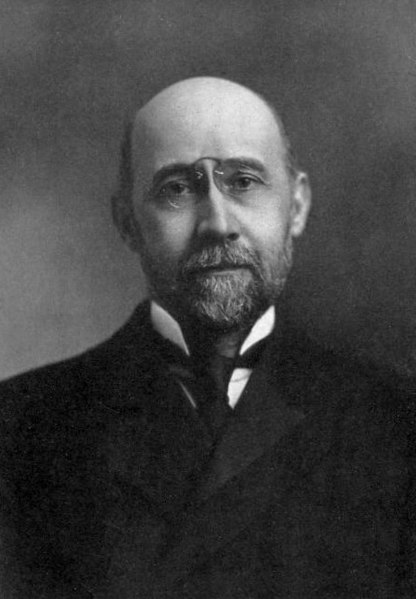- About MAA
- Membership
- MAA Publications
- Periodicals
- Blogs
- MAA Book Series
- MAA Press (an imprint of the AMS)
- MAA Notes
- MAA Reviews
- Mathematical Communication
- Information for Libraries
- Author Resources
- Advertise with MAA
- Meetings
- Competitions
- Programs
- Communities
- MAA Sections
- SIGMAA
- MAA Connect
- Students
- MAA Awards
- Awards Booklets
- Writing Awards
- Teaching Awards
- Service Awards
- Research Awards
- Lecture Awards
- Putnam Competition Individual and Team Winners
- D. E. Shaw Group AMC 8 Awards & Certificates
- Maryam Mirzakhani AMC 10 A Awards & Certificates
- Two Sigma AMC 10 B Awards & Certificates
- Jane Street AMC 12 A Awards & Certificates
- Akamai AMC 12 B Awards & Certificates
- High School Teachers
- News
You are here
Quotations in Context: Plato – 1
“I have hardly ever known a mathematician who was capable of reasoning.”
In 1888, Benjamin Jowett (1817–1893), the master of Balliol College, Oxford, published the third edition of his English translation of Plato’s Republic. This edition is the source of the quotation above. The quotation certainly appears to claim that mathematicians are incapable of any kind of reasoning. Paul Shorey (1857–1934), a Greek scholar at the University of Chicago, referred to this line as “Jowett’s wicked jest” [Plato 1969, p. 531]. When the quotation is placed within the context of Plato’s arguments in the sixth and seventh books of the Republic, it is clear that Plato’s intended meaning was very different.

Photograph of Benjamin Jowett. Public domain, from the book Oxford Men
& Their Colleges (Oxford, 1893), as digitized by the Internet Archive.
In the sixth book, Plato argued that the world can be divided into the visible and the intellectual. In the dialogue, Socrates tells Glaucon that the intellectual world can be broken further into two categories:
There are two subdivisions, in the lower of which the soul uses the figures given by the former division as images; the enquiry can only be hypothetical, and instead of going upwards to a principle descends to the other end; in the higher of the two, the soul passes out of hypotheses, and goes up to a principle which is above hypotheses, making no use of images as in the former case, but proceeding only in and through the ideas themselves [Plato 1888, p. 211].
The “lower” subdivision of the intellectual world uses hypotheses to engage in deductive reasoning. This subdivision is specifically identified with arithmetic, geometry and other mathematical sciences, which make use of the visible world as models for understanding the invisible world of thoughts and ideas. This is separated from the dialectic, the sphere of the intellect that uses tools such as discussion and debate to delve into the realm of ideas without making any use of the world of the visible.
The seventh book of the Republic explored the best way to train minds to understand the visible and the intellectual. For the subdivision of the intellectual that is concerned with deductive reasoning, the appropriate training is rigorous preparation in arithmetic, plane and solid geometry, astronomy and harmonics (i.e., the quadrivium). But Plato suggested that this training is not enough to fully prepare a student, and the quotation that is the topic of this column appears in Glaucon’s reply to Socrates:
Do you not know that all this is but the prelude to the actual strain which we have to learn? For you surely would not regard the skilled mathematician as a dialectician?
Assuredly not, he said; I have hardly ever known a mathematician who was capable of reasoning [Plato 1888, p. 235].
Glaucon’s statement, in the context of the surrounding material, clearly was not intended to mean that mathematicians are incapable of all kinds of reasoning; instead, the implication was that expertise in deductive reasoning does not necessarily translate into mastery of the form of reasoning identified as dialectic.

Photograph of Paul Shorey. Public domain, from the article “The Spirit of the University of Chicago”
in The University of Chicago Magazine 1, no. 6 (April 1909): 228, as reproduced in Wikimedia Commons.
Other translators seem to have avoided Jowett’s witty but potentially misleading phrasing. For example, in Shorey’s translation of the Republic (first published in two volumes in 1930 and 1935), the same text is translated into English as:
Or do we not know that all this is but the preamble of the law itself, the prelude of the strain that we have to apprehend? For you surely do not suppose that experts in these matters are reasoners and dialecticians?
No, by Zeus,” he said, “except a very few whom I have met [Plato 1969, p. 531].
Even Jowett himself gave a clearer translation of the original Greek in his first edition of the Republic, back in 1871:
Are we not advised that this is but the prelude of the actual strain which we have to learn? For I imagine that you would not regard the skilled mathematician as a dialectician?
No indeed, he said; very few mathematicians whom I have ever known are reasoners in that sense [Plato 1871, p. 359].
References
Plato. 1871. The Dialogues of Plato. Translated by Benjamin Jowett. Vol. 2. New York: Charles Scribner and Company.
Plato. 1888. The Republic of Plato. Translated by Benjamin Jowett. Oxford: Clarendon Press.
Plato. 1969. Plato in Twelve Volumes. Translated by Paul Shorey. 2nd ed. Vols 5–6. Cambridge: Harvard University Press.
“Quotations in Context” is a regular column written by Michael Molinsky that has appeared in the CSHPM/SCHPM Bulletin of the Canadian Society for History and Philosophy of Mathematics since 2006 (this installment was first published in November 2006). In the modern world, quotations by mathematicians or about mathematics frequently appear in works written for a general audience, but often these quotations are provided without listing a primary source or providing any information about the surrounding context in which the quotation appeared. These columns provide interesting information on selected statements related to mathematics, but more importantly, the columns highlight the fact that students today can do the same legwork, using online databases of original sources to track down and examine quotations in their original context.
Michael Molinsky (University of Maine at Farmington), "Quotations in Context: Plato – 1," Convergence (December 2022)




